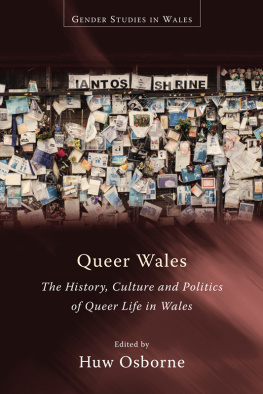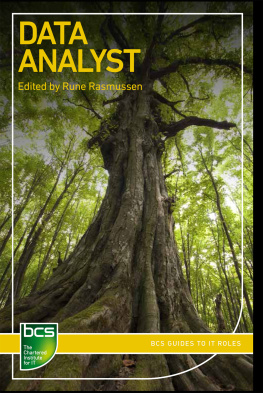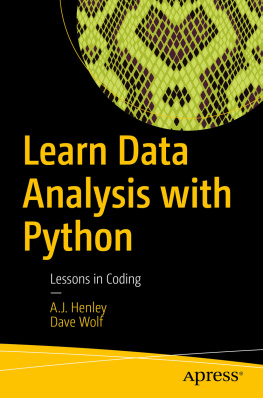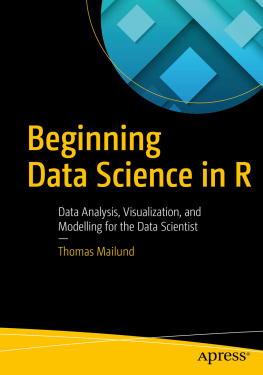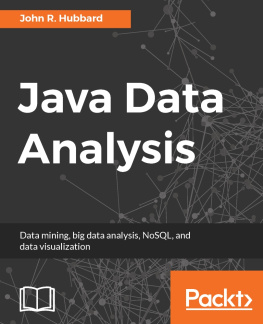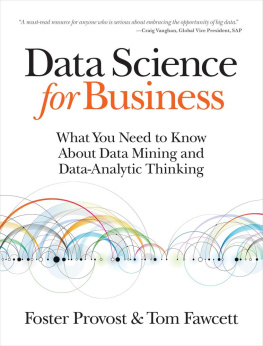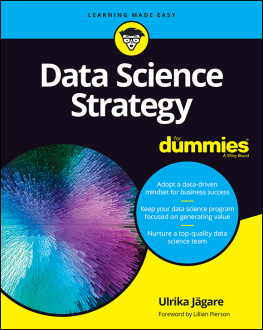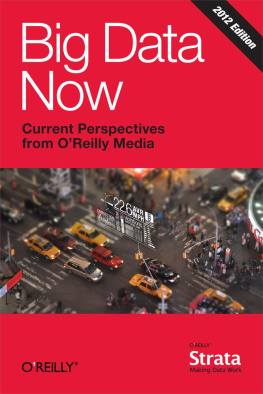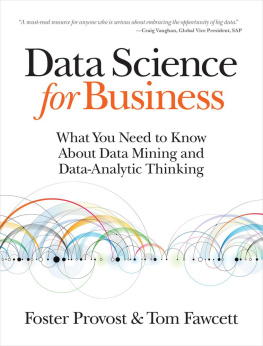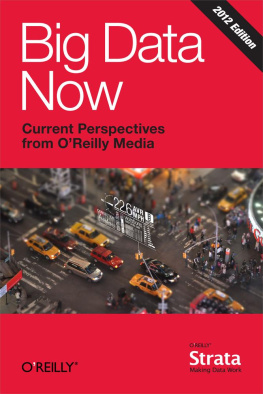QUEER DATA
BLOOMSBURY STUDIES IN DIGITAL CULTURES
Series Editors
Anthony Mandal and Jenny Kidd
This series responds to a rapidly changing digital world, one which permeates both our everyday lives and the broader philosophical challenges that accrue in its wake. It is inter- and trans-disciplinary, situated at the meeting points of the digital humanities, digital media and cultural studies, and research into digital ethics.
While the series will tackle the digital humanities in its broadest sense, its ambition is to broaden focus beyond areas typically associated with the digital humanities to encompass a range of approaches to the digital, whether these be digital humanities, digital media studies or digital arts practice.
Titles in the series
THE TROUBLE WITH BIG DATA
by Jennifer Edmond, Nicola Horsley, Jrg Lehmann and Mike Priddy
Forthcoming titles
HUMAN EXPLOITS, CYBERPUNK AND THE DIGITAL HUMANITIES
by Aaron Mauro
AMBIENT STORIES IN PRACTICE AND RESEARCH
Edited by Amy Spencer
METAMODERNISM AND THE POSTDIGITAL IN THE CONTEMPORARY NOVEL
by Spencer Jordan
QUEER DATA
USING GENDER, SEX AND SEXUALITY DATA FOR ACTION
Kevin Guyan
To exist is to resist,
with or without data.
Queer Data is dedicated to those not in the room when decisions are made about them. People at the sharp end of administrative practices, assigned a category but denied a say. Individuals not counted accurately and individuals not counted at all. Queer Data is for everyone who has had to provide (yet more) data as proof of injustice in the hope that the system will change, if not now but in the future. Queer Data is for those asked to provide data to prove their existence.
I wish to note particular thanks to Kirstie English, Ashlee Christoffersen, Emma Ritch, Vic Valentine, Jess Moody, Gary J. Gates and Kath Browne for notes and reflections on draft chapters. Feedback received on the draft manuscript during blind peer review was also helpful in shaping the final version of the text. In addition, the support and enthusiasm of Paula Kennedy at Emerald and Laura Cope and Ben Doyle at Bloomsbury Academic helped transform Queer Data from a collection of ideas into a published work. I am also grateful for the many conversations shared with colleagues at Advance HE and Equality Challenge Unit about data, identities and inequality in higher education. My ideas were also shaped through insights from many researchers, practitioners and activists, engaged in the use of data for action in the UK and around the world, who took time to speak to me about their work. This includes students, attendees, co-panellists and organizers at events hosted by Queer Code Scotland, Princeton Universitys Queer Politics Seminar, the Irish Sexualities and Genders Research Network, the University of Stirling, UK Data Service and the Data 4 Good Festival.
Writing this book was only possible because of the support and solidarity from my grandparents and parents: Jim and Grace Marnoch, Isobel Guyan, Craig and Alison Guyan. And lastly, my husband Andrs Ordorica my partner for long writing days, coffee breaks and discussions about how to change the world for the better.
My examination of the design of the sexual orientation question in Scotlands 2022 census, discussed in .
| AI | Artificial intelligence |
| BAME | Black, Asian and minority ethnic |
| CTEEA | Culture, Tourism, Europe and External Affairs committee |
| EDI | Equality, diversity and inclusion |
| EHRC | Equality and Human Rights Commission |
| EIA | Equality impact assessment |
| EU | European Union |
| GEO | Government Equalities Office |
| GIRES | Gender Identity Research & Education Society |
| GRA | Gender Recognition Act |
| GRC | Gender Recognition Certificate |
| ICAO | International Civil Aviation Organisation |
| LGBTQ | Lesbian, gay, bisexual, trans and queer |
| MP | Member of Parliament |
| MSP | Member of the Scottish Parliament |
| NRS | National Records of Scotland |
| NSO | National Statistical Office |
| OECD | Organisation for Economic Co-operation and Development |
| ONS | Office for National Statistics |
| UN | United Nations |
Queer data is a tension. On one hand, it freezes in time and space particular ideas about what it means to identify as lesbian, gay, bisexual, trans and/or queer. It establishes these meanings as categories, which are fed into counting machines and used as the basis for decision-making. This construction and deployment of categories are at odds with the queering of data, which critically questions the foundations upon which these categories stand, the value granted to some identities above others and who actually benefits from the collection, analysis and use of data about LGBTQ people. Queer data is more than a study of individuals that sit outside the categories of heterosexual or cisgender. It is equally a brash, confrontational and in-your-face challenge to conventional understandings of how data and identities intersect how people respond to queer data is either their problem or their wake-up call. As an approach to data and identities, queer data disrupts the binaries of male/female, heterosexual/homosexual and cis/trans and asks us to reconsider the notion that numbers speak for themselves. When data captures the lives and experiences of LGBTQ people, numbers do not speak for themselves they always speak for someone. As I will argue, decisions made about who to count, what to count and how to count are not value-neutral but bring to life a particular vision of the social world. Queer data exposes the decisions made about data, from collection to its use for action, to ensure that data about LGBTQ people is used to construct a social world that values and improves the lives of LGBTQ people.
Gender, sex and sexuality data is having a particular moment in the UK with increased interest from those outside of academic contexts and those engaged in data practices in the public, private and voluntary sectors.among LGBTQ individuals, those who stand to benefit from being counted also risk engaging with technologies that might normalize categories and practices that hamper rather than help the wider LGBTQ population.
The topic of difference has energized the work of LGBTQ researchers, practitioners and activists since, at least, the middle decades of the twentieth-century. Although this work addressed themes such as social mobilization, political organization and cultural representation, the experiences of people we might now describe as LGBTQ have historically eluded data collectors and analysts, an absence I explore in . The production of meaning and subsequent distribution of life chances have the effect of reflecting an incomplete account of LGBTQ lives and experiences to the outside world and among LGBTQ people, whose sense of self is informed by this partial reflection. To minimize the risk of mistakes being made, LGBTQ people need to lead this work and seize control of data that impacts their lives, rather than trust that others will understand, or care enough to understand, experiences that sit beyond their personal frames of reference.


